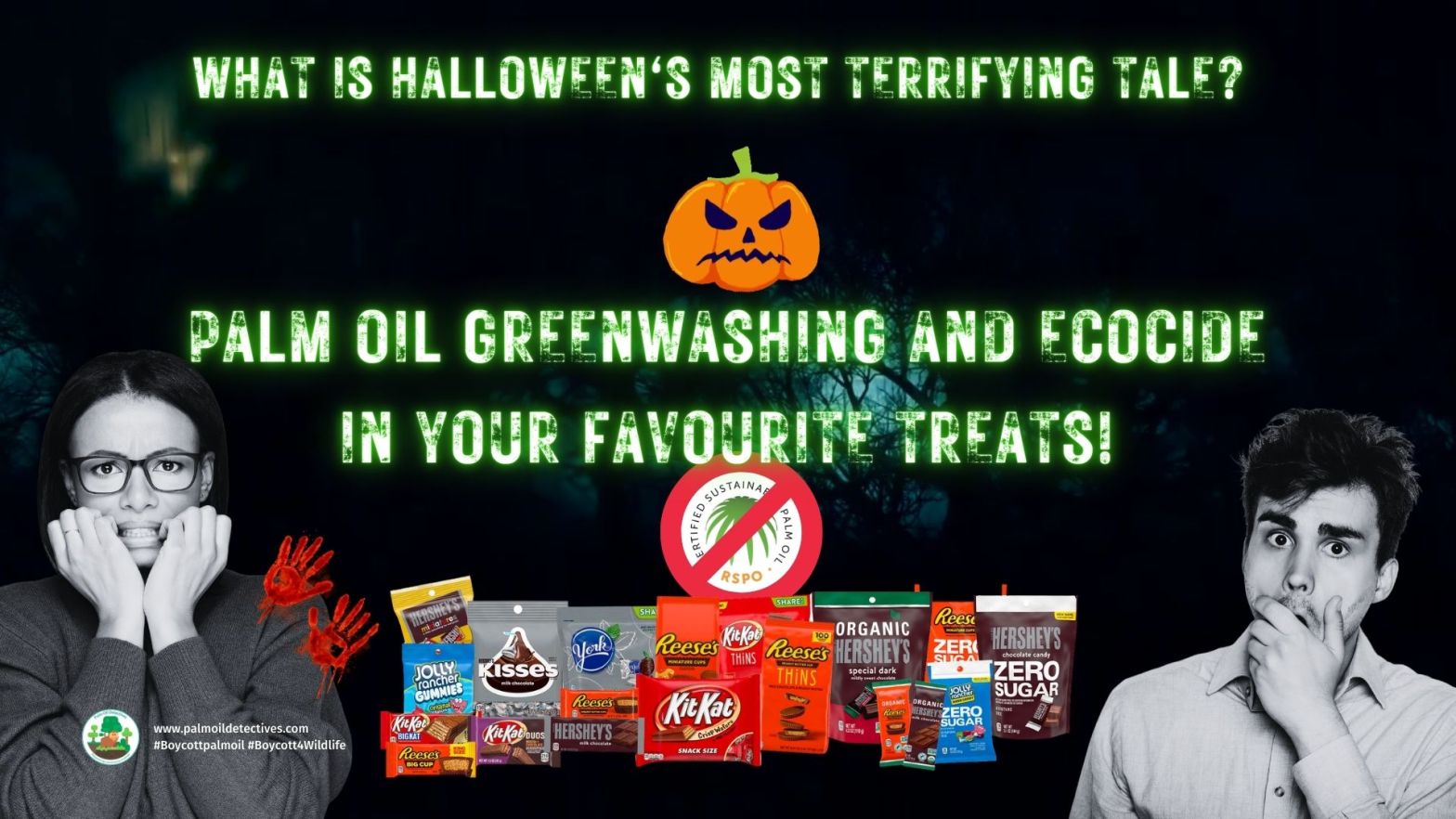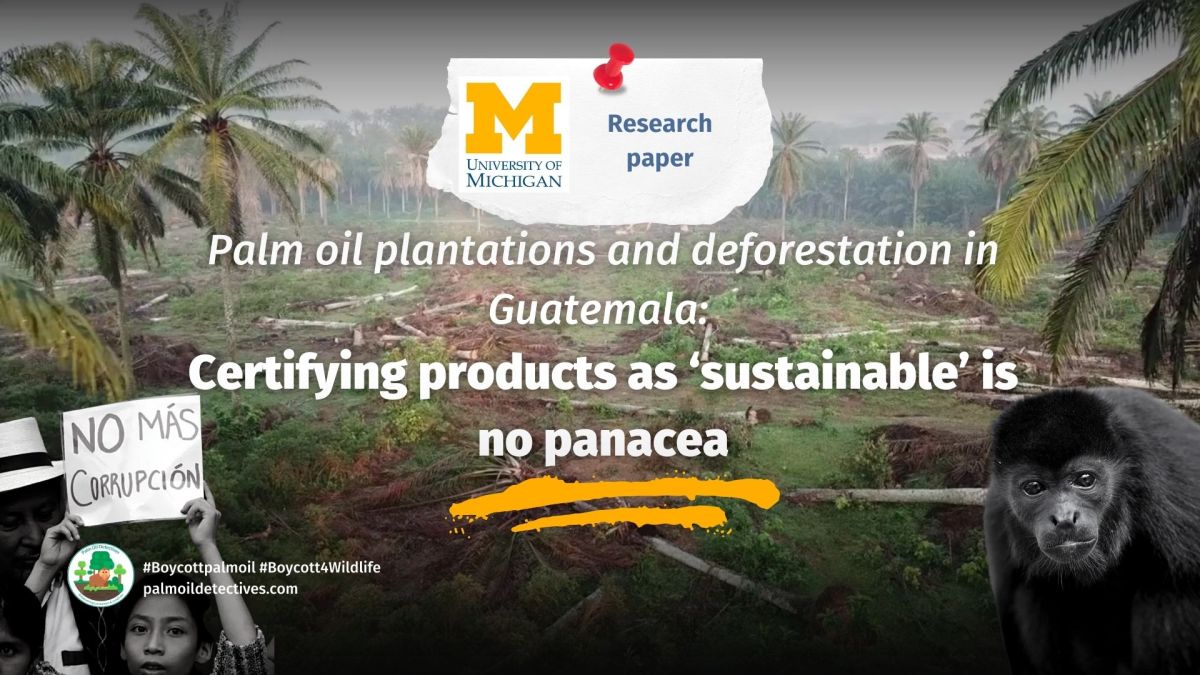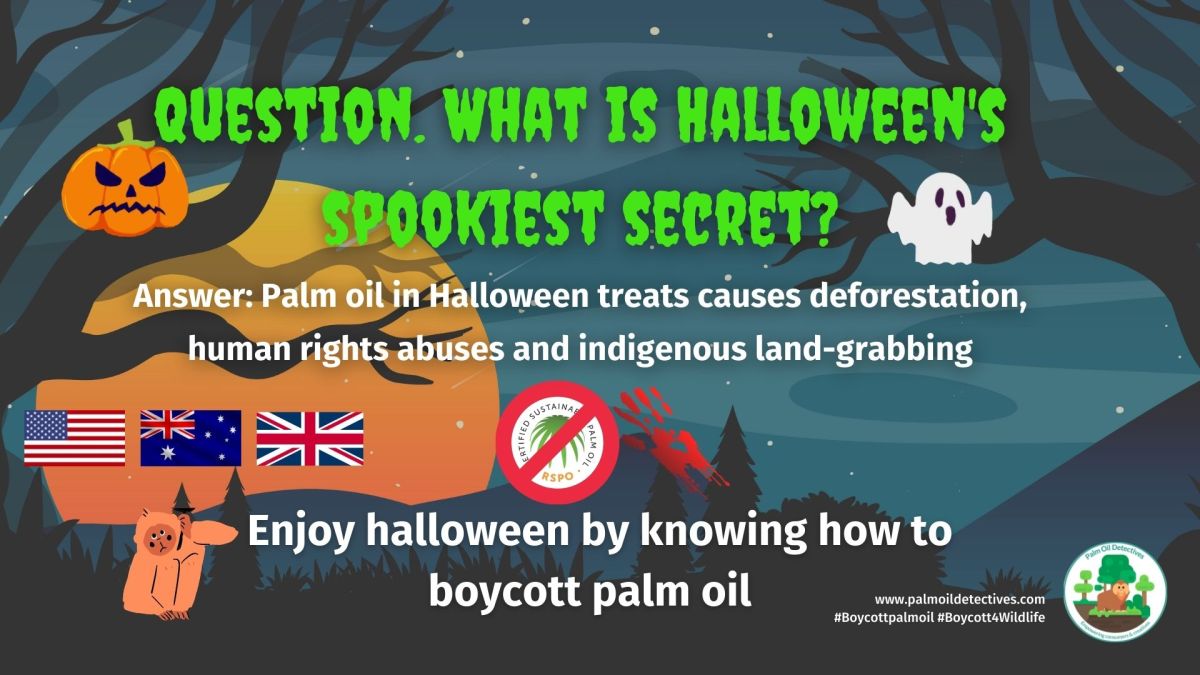This Halloween, as you revel in terrifying tales and creepy costumes, remember that the most terrifying tale of all isn’t enjoyable folklore—it’s the horrifying truth about palm oil. This ingredient causes deforestation, ecocide, human rights abuses and indigenous land-grabbing. The production of palm oil casts a dark shadow over our planet, as it can only be grown on destroyed tropical rainforests. So-called “sustainable” palm oil used by the world’s biggest food brands like Nestle, Mondelez, Hersheys, Ferrero and Mars is a complete greenwashing lie. So don’t buy any of it! All palm oil threatens the very existence of wildlife, polluting our air and water, accelerates climate change, and tramples on the rights of indigenous communities worldwide. This Halloween, take action and use your wallet as a weapon. 🌍🌳🦍 #Boycottpalmoil #Boycott4Wildlife
What is #Halloween’s most terrifying tale? #Palmoil #greenwashing and #ecocide contained in your favourite #chocolate #treats and #candy! Learn how to help #wildlife this All Hallow’s Eve #Boycottpalmoil #Boycott4Wildlife
Tweet
Did you know even so-called “sustainable” #palmoil is a #greenwashing lie that still causes #deforestation? Learn how to #Boycottpalmoil #Boycott4Wildlife this #Halloween. Instead buy #palmoilfree and
Tweet
#vegan sweet treats and #candy
Palm oil is commonly used in Halloween candies and treats for one reason only – it is cheap to manufacture.
The production of palm oil has severe environmental and social impacts. Deforestation and ecocide caused by palm oil production threatens wildlife habitats, contributes to air and water pollution, is strongly linked to climate change, and infringes on the rights of indigenous peoples all over the tropical world.
A 2019 World Health Organisation (WHO) report into the palm oil industry and RSPO finds extensive greenwashing of palm oil deforestation and the murder of endangered animals (i.e. biodiversity loss)
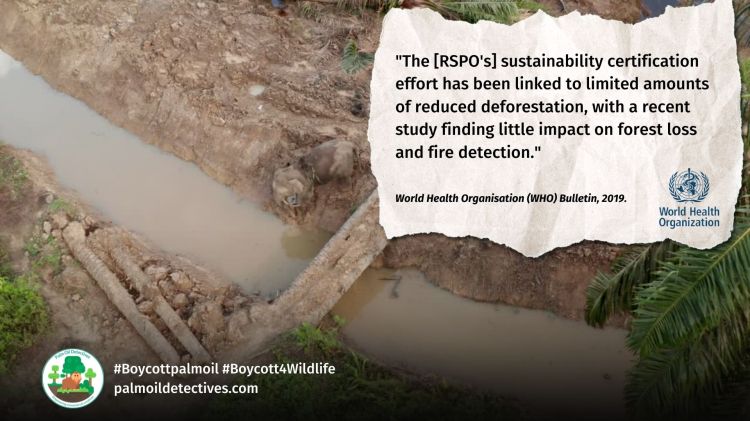

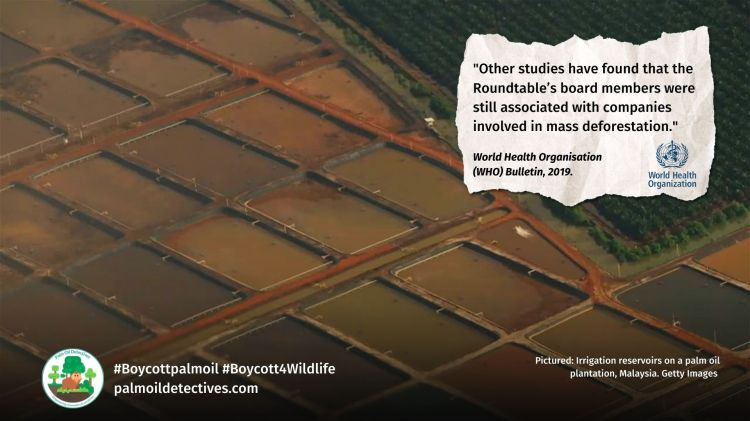
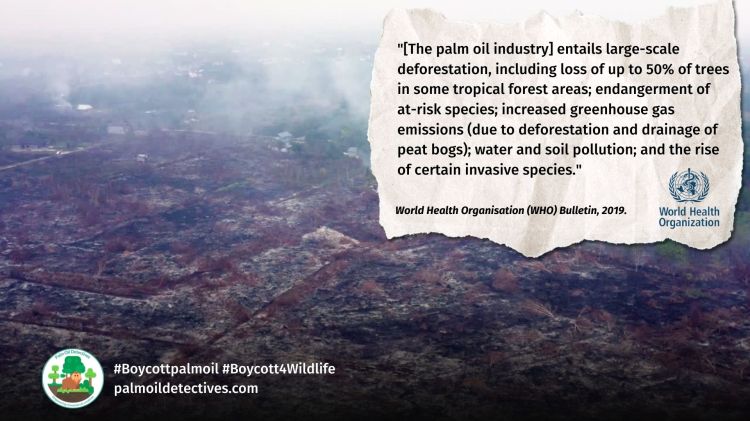
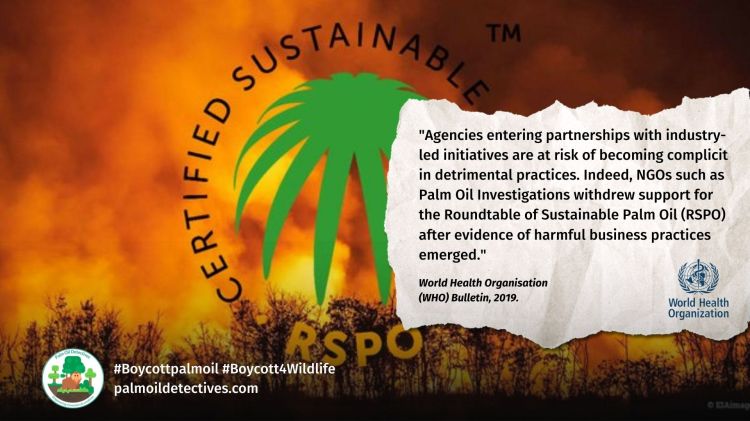
Although proponents of palm oil claim that it helps farmers to earn a living wage, a 2021 report by Chain Reaction Research found that the world’s biggest brands earn the lion’s share of profit from palm oil, 66% or more of gross profit flows back to the world’s biggest FMCG companies such as Nestle, Unilever, Hersheys and Colgate-Palmolive. In contrast, almost 0% of profit flows back to farmers themselves.
The Problems with Palm Oil
Palm Oil Detectives is a website that gathers together evidence from dozens of different sources in order to clearly show the elaborate and widespread greenwashing of so-called “sustainable” palm oil. Take a look at the 10 forms of “sustainable” palm oil greenwashing to see how this works, using a network of zoos and fake NGOs in order to push the narrative of “sustainable” palm oil to consumers.
Palm oil deforestation in Guatemala: Certifying products as ‘sustainable’ is no panacea: University of Michigan
Newly published research from the University of Michigan reveals that despite the Roundtable on Sustainable Palm Oil (RSPO) certification system being influential,…
10 reasons why ecolabels & commodity certification will never be a solution for importing tropical deforestation
In 2022, 71 environmental and human rights groups from around the world wrote to the EU Commission to warn that certification schemes…
RSPO member SIAT leaves Nigerian farmers without food. Leases their illegally taken land for €1.23 Euros per hectare, per year
A 5-month investigation by Elfredah Kevin-Alerechi and Kevin Woke of Sahara Reporters reveals how RSPO member SIAT Nigeria Limited is involved in…
Greenwashing Tactic #9: Partnerships, Sponsorships & Research Funding
Jump to section Orangutan Land Trust funded by rainforest destroying palm oil co. Kulim Malaysia Berhad Orangutan Land Trust funded by Agropalma:…
This website also provides evidence in the form of many research papers and reports from many non-profits (those organisations not partnered with the palm oil supply chain). These reports expose the immense corruption, ecocide and greenwashing in the palm oil industry along with its human rights abuses, violence, land-grabbing and animal cruelty – all associated with RSPO members supposedly using “sustainable” palm oil.
Greenwashing: Manufacturing consumer demand for palm oil
Since its inception two decades ago, the global certification for palm oil the RSPO continues to promote “sustainable” palm oil. Yet not one of its supply chain members has actually eradicated deforestation or human rights abuses from their palm oil supply chains. This constant promotion of the palm oil industry in spite of evidence of its ongoing failures is clear evidence of the RSPO’s greenwashing.
The global demand for palm oil contributes significantly to deforestation, particularly in countries like Indonesia, Malaysia, Brazil, Colombia, Nigeria and Uganda. These regions are rich in biodiversity, and the loss of their rainforests impacts numerous species non-human beings of all shapes and sizes. This includes not only the poster child for palm oil ecocide – the three orangutan species, but also rare and endangered plants and animal species.
From the smallest insect to the most magnificent elephant, to exquisite and vibrantly coloured birds – all are under threat by palm oil’s relentless growth across all tropical regions of the world. Indigenous peoples with their unique cultures, customs and languages are also endangered by palm oil expansion as well.
The #Boycottpalmoil #Boycott4Wildlife movement starts with you
If this terrifying tale of palm oil has alarmed you, the good news is – there are actions you can take.
One powerful and effective way to help rare animals, plants and indigenous peoples is to use your wallet as a weapon and boycott palm oil. By learning how to identify palm oil in products and choosing products that are palm oil free, you can contribute to reducing demand for this destructive commodity.
A great place to start is by searching for palm oil-free alternatives on this website and also by promoting the #Boycottpalmoil and #Boycott4Wildlife on movement on social media.
Remember, every purchase you make has an impact. This Halloween, support the wildlife you love and use your wallet as a weapon.
Download your free Halloween infographic here
Learn how to boycott palm oil this Halloween in America, the UK and Australia
The reality of these chocolate and confectionery brands is the spookiest story you will ever hear this Halloween Learn how to boycott with handy lists for the US, Uk and Australia. Countless reports show that popular lollies, candies and chocolate brands in Australia, the United States of America and United Kingdom such as Hersheys, Nestle,…

